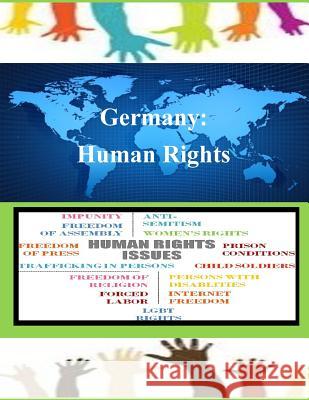Germany: Human Rights » książka
Germany: Human Rights
ISBN-13: 9781502852441 / Angielski / Miękka / 2014 / 28 str.
Germany is a constitutional democracy. Citizens choose their representatives periodically in free and fair multiparty elections. The lower chamber of the Federal Parliament (Bundestag) elects the head of the federal government, the chancellor. The second legislative chamber, the Federal Council (Bundesrat), represents the 16 states at the federal level and is composed of members of the state governments. Observers considered the September national elections for the Bundestag to have been free and fair. Authorities maintained effective control over security forces. Security forces did not commit human rights abuses. Right-wing extremism continued to be a serious problem. Perpetrators attacked ethnic non-Germans on a number of occasions, and there were many other expressions of xenophobia. Continuing manifestations of anti-Semitism were another serious source of concern, as there were reports of many anti-Semitic acts and behavior. Authorities attributed them primarily to adherents of the extreme right, but Muslims and persons hostile to Israel perpetrated others. There were a number of other human rights problems. Authorities continued to incarcerate certain categories of offenders after they served their sentences, asserting they remained a threat to society. The government limited the freedoms of speech, press, assembly, and association of neo-Nazi and other groups the government deemed extremist or threats to the constitution. Observers questioned whether the country's "fast procedure" for determining the refugee status of asylum seekers gave applicants a fair hearing. There were reports of gender-based violence, and trafficking of men, women, and children for sexual exploitation and labor. Societal violence and discrimination because of sexual orientation persisted, as did some societal discrimination against persons with HIV/AIDS.
Zawartość książki może nie spełniać oczekiwań – reklamacje nie obejmują treści, która mogła nie być redakcyjnie ani merytorycznie opracowana.











